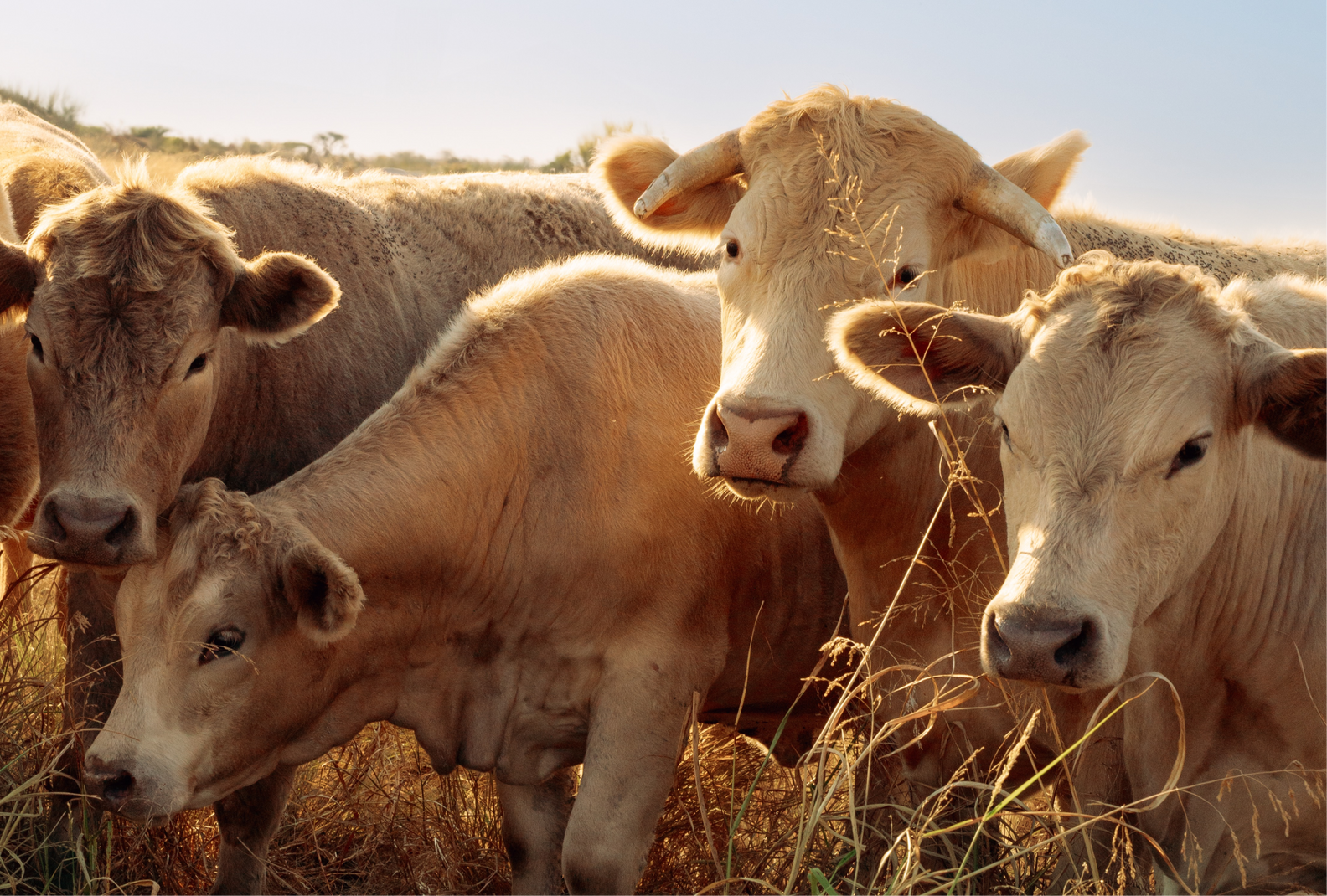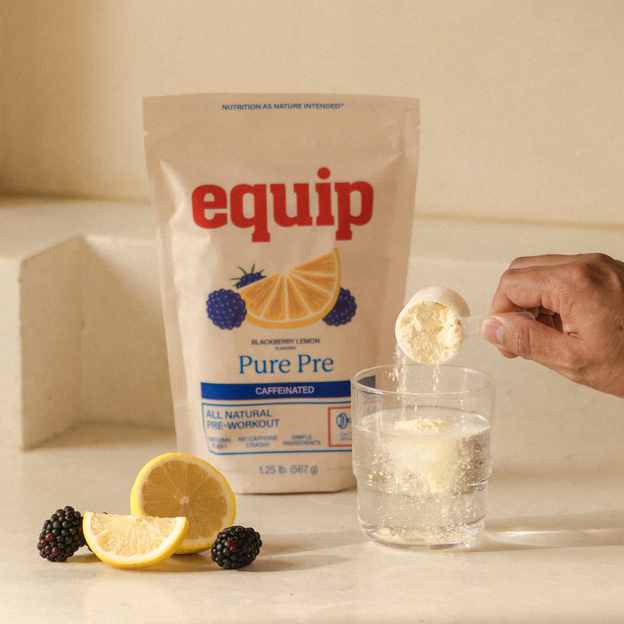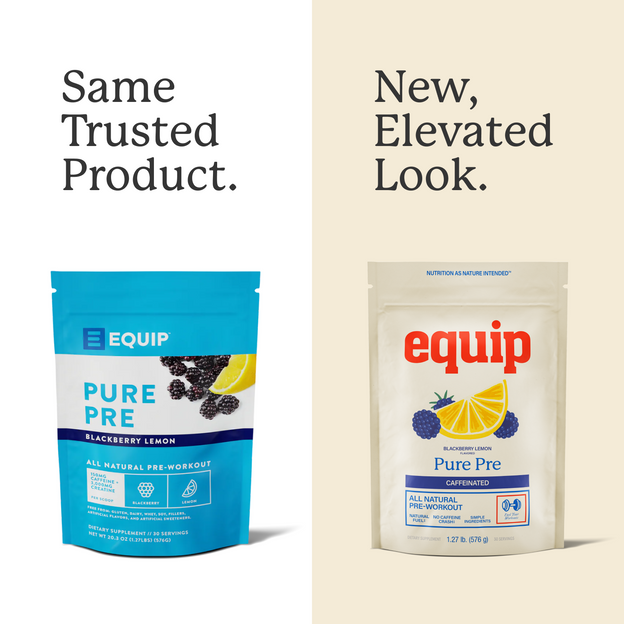What is Beef Protein?
Beef protein is a clean, highly bioavailable source of complete protein made from real beef. Unlike whey protein, which comes from dairy, or plant proteins that require heavy processing, our beef protein powder is derived from grass-fed, pasture-raised cows and simply made with just heat, water and time.
How Beef Protein Is Made
Our beef protein is made from grass-fed, pasture raised cows, primarily in the U.S., but we also leverage partner farms in Sweden based on supply and demand. The manufacturing facility takes beef bones and adhering meat. The bones and meat are processed via mechanical and thermal processing, without any chemicals. They’re initially crushed into <25mm pieces and defatted, this process removes all cholesterol too. Water is then used in a similar fashion to how bone broth is made, cooking the bones and meat via a ‘low and slow’ processing technique, low heat for a longer period of time to keep nutrients intact. The bones are disposed and the remaining liquid is spray dried, turning the liquid into a fine, nutrient-dense clean protein powder. No chemicals are used in this process, just heat and water!
Given the protein is nose to tail nutrition - made from beef bones AND meat, it is complete protein, meaning it contains all nine essential amino acids. This differs from collagen and bone broth protein powders that are often marketed as ‘beef protein,’ but are exclusively made from bone and/or hides - and is not complete protein as a result - they are missing both tryptophan and cysteine. Beware of ‘beef protein’ that is actually just bone broth powder!
The Benefits of Beef Protein Powder
Why do people love beef protein? The short answer is that it’s easy to digest, highly bioavailable, and is nutrient-dense with ample naturally occurring collagen and gelatin for skin, joint, and bone health. While beef protein (think steak!) is one of the most ancient sources of nutrition, beef protein powder is relatively new compared to whey or plant-based protein. It symbolizes our return to real – tried and true, timeless nutrition. Logically, a steak is one of the most nutrient dense sources of protein you can consume – getting that nutrition in powder form simply makes sense.
Beef protein contains naturally occurring collagen and gelatin. This provides a robust nutrient profile with high amounts of glycine and proline, amino acids that are hard to otherwise get in your diet but provide great benefits to gut health, hair, skin, nails, and joint health! The naturally occurring collagen and gelatin also makes for a rich, creamy texture which is super versatile in recipes. Once people experience the delicious texture and flavors of Prime Protein, it’s very rare they revert back to whey or plant-based options. Beef protein is also rich in b vitamins and iron! A single serving of Prime Protein contains 1mg of B12, close to half the recommended daily intake. It is also a great source of B2, B6, B7, and B12!
Beef Protein vs. Whey Protein
Although plant-based proteins have become trendy in the past few years, whey is still the most popular protein source on the market. It’s generally cost-effective and mixes easily. That does not tell the whole story though. Whey is derived from the cheesemaking process. Once the milk passes quality tests, enzymes are added to separate the curd from the liquid whey. The liquid whey is then pasteurized, destroying a lot of nutrients, and the protein is concentrated or isolated. Given that it's a dairy product, many people experience digestive discomfort, bloating, and even acne from insulin-like growth factor 1 (IGF-1). In addition, whey can spike blood sugar and contains little glycine and proline, amino acids which are hard to get in our diets and provide great benefits to skin, joint, bone, and gut health.
Unlike whey protein, beef protein is dairy free. Most people find it far easier to digest than other protein powders since it is dairy free and far less processed than other protein sources. It’s a nutrient-dense, bloat-free protein source that’s super versatile in recipes, packed with a delicious, creamy texture.
There’s a consumer bias towards purchasing whey because many assume it provides superior benefits to strength and muscle development. That may be true versus plant-based protein, but there are several studies suggesting that beef protein isolate (like our Prime Protein) may be superior to whey for both hypertrophy and strength, in addition to the benefits previously noted surrounding digestion and micro-nutrients. Here are a few of those studies:
- In one study on 30 college-aged resistance trained men, use of beef protein isolate resulted in a slightly higher increase in lean body mass than whey (5.7% vs 4.7%). No significant differences were observed in strength gains, but the beef protein also resulted in slightly more fat loss than whey (10.8% vs 8.3%).
- A second study noted that 20 grams of beef protein was better for preserving or increasing thigh muscle mass in 24 master-age (35-60 years old) triathletes during triathlon training compared to whey protein. Additionally, only beef protein significantly improved iron status. Furthermore, there was a numerically greater reduction in fat mass with Beef (-6.7%) vs. whey (-4.1%).
- A third study compared 20 grams of beef or whey protein in 8 recreationally active males. Increase in fat-free mass was higher with Beef (2.0%) vs. Whey (1.4%) protein. Additionally, beef increased biceps brachialis thickness 11.2% vs. 1.1% with whey. Furthermore, only beef protein increased arm and thigh circumferences. The 1 rep max for squat was also higher with Beef (21.6%) vs. whey (14.6%) and 1 rep max for bench was also higher (15.8% vs. 5.8%, respectively).
Beef Protein vs. Plant Protein
Contrast that to plant-based protein – often made from peas. You don’t add peas to your dinner plate to hit your protein goals, it’s a great source of carbs and fiber, not protein. Additionally, peas are not complete protein in isolation. It takes a high volume of peas to turn this carbohydrate and fiber source into a protein isolate. The high volume of cell walls and fibrous material leads to what many find to be an offputting, gritty texture. Our bodies are not designed to process highly concentrated protein isolates from peas, but we’ve been consuming protein from steak since the beginning of time! Our digestive systems have evolved with specific enzymatic capabilities that reflect our omnivorous evolutionary history. When it comes to plant proteins, several enzyme-related challenges can occur. Here are two examples:
- Protease limitations - Our bodies produce proteases (protein-digesting enzymes) like pepsin, trypsin, and chymotrypsin that are optimized for animal protein structures. Plant proteins often have different amino acid configurations and tertiary structures that these enzymes may break down less efficiently.
- Cellulase absence - Unlike herbivores, humans don't produce cellulase, which is necessary to break down cellulose in plant cell walls. This means we can't fully access some nutrients trapped within plant cells, and undigested cellulose can contribute to gas and bloating.
In addition, the fiber content, high FODMAP-nature, anti-nutrients (lectins, phytates, and tannins), cell walls, and more, make plant-based protein harsh on the gut for many consumers, and overall not a pleasant product to consume! Hitting your protein goals should be fun, delicious, and pain free.
In summary, beef protein isolate is easy to digest with limited to no digestive discomfort or bloating. It may provide increased muscle hypertrophy, strength, and fat loss versus whey or plant-based protein. It has a more balanced methionine/glycine ratio (~3-times higher in glycine), supporting metabolic balance and mitigating common inflammatory effects of other protein sources. It is dairy-free for those with dairy allergies or intolerance, and it is an excellent source of b-vitamins. We use beef protein powder in our clean protein bars (which also include colostrum powder and grassfed collagen).


